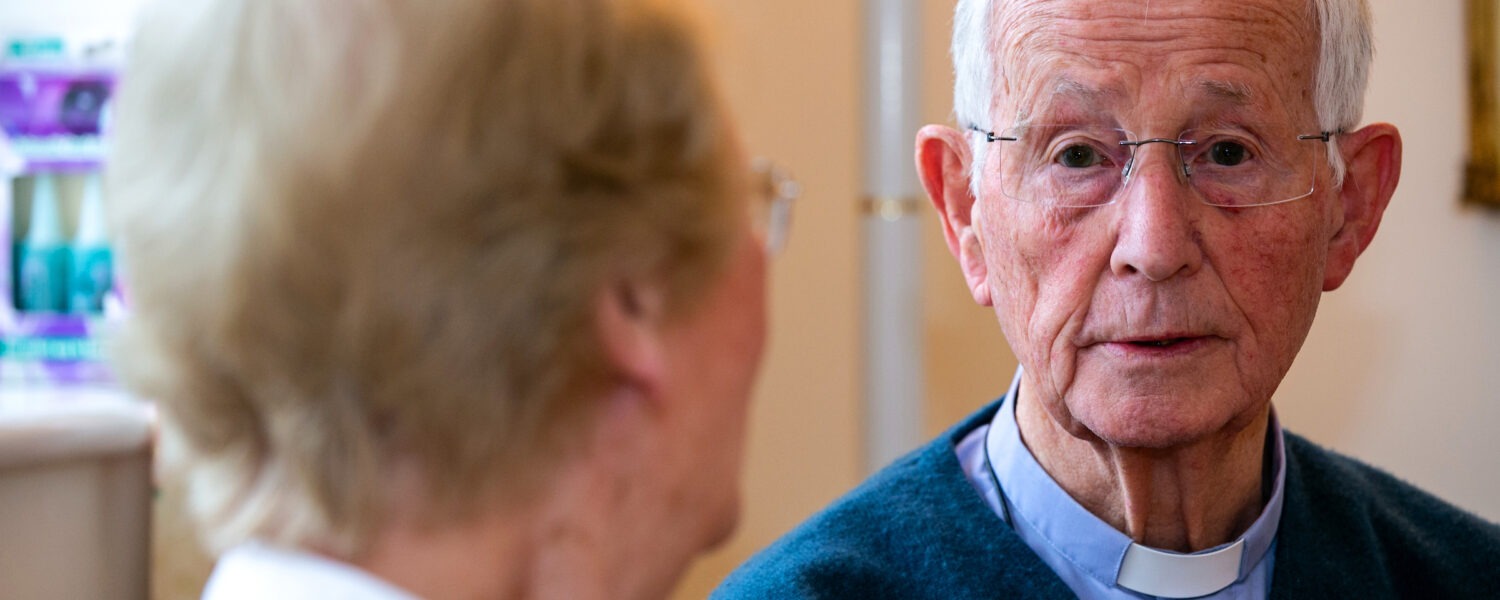St Luke’s news in Mental Health Awareness Week
A sharp rise in demand from clergy for wellbeing and mental health support means St Luke’s, a leading charity in this field, is to concentrate all its resources on improving mental health and psychological wellbeing for clergy.
As well as providing clergy via their diocese with top-quality, preventive training to enhance their wellbeing, St Luke’s will continue to refer individual clergy and family members to confidential psychological and wellbeing services.
One priest’s experience
Parish priest Revd Russ Gant approached St Luke’s at the recommendation of his archdeacon, when he felt he had reached burnout point: ‘I took up my first incumbency in 2016. After a year or two, I was working a ridiculous number of hours outside of my Friday rest day, 70+ a week. I worked really hard but felt it was perceived as not enough. Late November 2019, I phoned my wife at work and was sobbing and feeling pretty dreadful.’ Russ was referred by St Luke’s for a course of psychotherapy. This intervention was pivotal for him: ‘I’m not sure I would have stayed in ministry without St Luke’s intervention, to be honest. I’m putting a lot less pressure on myself now and learning to accept that good enough is good enough.’
The charity – to be known as St Luke’s for Clergy Wellbeing from now on – has additional programmes at pilot stage, to expand its range of wellbeing services. These include an ecumenical project to provide army chaplains with regular pastoral supervision and new workshops on topics such as understanding our response to trauma.
‘Since 2013, when we launched our resilience training developed specifically for clergy, and reflective practice groups, we have built our expertise and reputation in this field,’ says Chief Executive Dr Claire Walker. ‘These resources have been shown to reduce isolation, increase self-awareness and foster good self-care. Increasing demand for this training, as well as for individual clergy needing psychological support and intervention, means we will concentrate on this growing field of work, and no longer offer physical healthcare support.’
Psychiatrist sees significant increase in demand
Dr Gary Bell, London-based consultant psychiatrist and St Luke’s trustee, comments: ‘I’ve worked with St Luke’s for Clergy Wellbeing for over 10 years and have seen the need for wellbeing and psychological support increase significantly during this period, exacerbated recently by pandemic-related stress and exhaustion. We understand the pressures that clergy face and can help them to build resilience and provide interventions that enable them to recover. We want clergy to flourish and enjoy a fulfilling ministry, which then benefits their local community. That is why we are choosing to put all our efforts behind this work.’
‘The Covenant for Clergy Care and Wellbeing shows that the Church recognises that wellbeing is key to ministry and mission,’ says Jan Korris, St Luke’s trustee and wellbeing adviser, and a member of the Covenant’s initial working group. ‘Our wellbeing resources encourage clergy to embrace greater self-care and we receive extremely positive feedback from clergy who have engaged with our training. We’re also very encouraged by the outcomes of our pilot projects.’
What dioceses are experiencing
‘I think St Luke’s sole focus on psychological health is responding to the specific needs of clergy at this time’ says Archdeacon Paul Davies, Diocese of Guildford. ‘We have seen above-average instances of adverse stress and mental exhaustion in our diocese. The trend was increasing slightly before the pandemic but has worsened through it. St Luke’s have been amazing with both preventative wellbeing support and restorative interventions. Those who have been treated by St Luke’s over the last few years would say that they don’t know what they would have done without their help – which is sadly beyond NHS provision.’
St Luke’s will continue its advocacy work, as an objective voice for clergy wellbeing, independent of the Church, and in collaborating with clergy wellbeing professionals to encourage shared learning.


